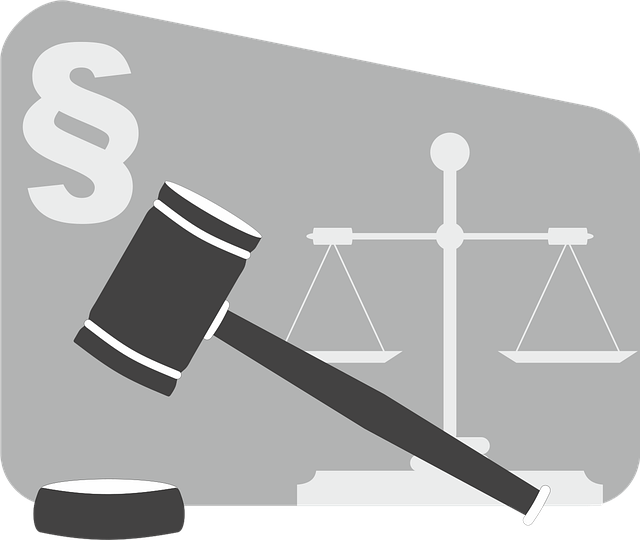Antitrust laws protect fair competition and prevent businesses from harming consumers or distorting markets. Understanding these regulations is crucial for avoiding legal issues, maintaining integrity, and reducing sentences for violations. Effective strategies include internal investigations, strong compliance records, proactive measures, responsible negotiation tactics, active cooperation during enforcement, robust internal controls, debt restructuring, and positive community involvement. These approaches can lead to favorable outcomes, sentence reductions, and business continuity in complex antitrust cases.
“Antitrust violation cases pose significant challenges for businesses, yet understanding and mitigating these risks are crucial for long-term success. This article explores essential aspects of antitrust laws and their purpose, helping you identify common signs of potential violations. We delve into legal strategies for defense against charges and provide effective negotiation tactics to achieve sentence reduction. Additionally, discover post-trial recovery and business preservation techniques, ensuring your company’s resilience and growth.”
- Understanding Antitrust Laws and Their Purpose
- Common Signs of Potential Violations
- Legal Strategies for Defense Against Charges
- Effective Negotiation Tactics for Sentence Reduction
- Post-Trial Recovery and Business Preservation Techniques
Understanding Antitrust Laws and Their Purpose

Antitrust laws are designed to promote fair competition in the marketplace by preventing businesses from engaging in anti-competitive practices that could harm consumers and distort market forces. These laws aim to ensure a level playing field, fostering innovation, and maintaining diverse options for consumers. Understanding these regulations is crucial, especially for companies aiming to avoid potential legal pitfalls. By comprehending the rules, firms can implement effective strategies for sentence reduction should they face allegations of antitrust violations.
The purpose of these laws extends beyond penalizing bad behavior; they also serve as a guide for responsible business conduct. Companies can leverage their knowledge of antitrust principles to navigate complex regulatory environments and ensure their practices are within legal boundaries. This proactive approach, coupled with effective legal counsel, can be instrumental in avoiding indictment and maintaining the trust of both the philanthropic and political communities across the country.
Common Signs of Potential Violations

Antitrust violation cases are complex and often involve subtle signs that may indicate unlawful behavior. Common indicators include price-fixing schemes, where companies collude to set prices, or market division strategies where competitors agree to allocate territories or customer segments. Unfair business practices like exclusive dealing agreements—where a buyer is required to purchase from one supplier exclusively—can also raise red flags.
Identifying potential violations early is crucial for mitigating risks. Effective strategies for sentence reduction often involve proactive measures such as conducting internal investigations, documenting all stages of the investigative and enforcement process, and fostering an ethical corporate culture. Moreover, companies with an unprecedented track record of compliance can demonstrate their commitment to antitrust laws, potentially avoiding indictment and severe penalties.
Legal Strategies for Defense Against Charges

When facing antitrust violation charges, which can be particularly daunting in high-stakes cases, a robust legal strategy is paramount for defense. One of the primary objectives for defendants is to mitigate potential sentences, especially considering the severe consequences for businesses and their leaders. Effective strategies for sentence reduction often involve meticulous document review, evidence analysis, and identifying areas where cooperation with regulators could prove beneficial. This proactive approach can significantly influence the outcome, particularly in complex cases that might otherwise lead to lengthy jury trials.
Moreover, understanding the unique circumstances of each case is crucial. Defendants may leverage factors such as their history of compliance, any philanthropic or political community involvement, and a willingness to implement stringent remedial measures to demonstrate good faith. These strategies not only bolster the defense but also emphasize the potential for positive change, which can be particularly impactful in shaping regulatory decisions and outcomes.
Effective Negotiation Tactics for Sentence Reduction

In antitrust violation cases, effective negotiation tactics are crucial for securing sentence reductions. Defendants with a strong white collar defense strategy can leverage their unique position to achieve favorable outcomes. One key approach is to demonstrate cooperation and transparency throughout the legal process. By providing comprehensive discovery, participating actively in investigations, and adhering to court-ordered deadlines, defendants show their commitment to resolving the case. This proactive behavior often impresses judges and can lead to reduced sentences or even probation.
Additionally, presenting a philanthropic and political communities–focused narrative can be powerful. Defendants who articulate how their actions have broader positive implications or contribute to societal progress may gain leniency. An unprecedented track record of successful businesses or community initiatives can also serve as a mitigating factor. Such strategies not only help in sentence reduction but also reflect a genuine desire for redemption and positive change, enhancing the defendant’s standing in court.
Post-Trial Recovery and Business Preservation Techniques

In the aftermath of a successful antitrust violation case, businesses often face significant challenges in terms of financial recovery and maintaining their operations. However, there are effective strategies for sentence reduction that can help ease this transition. One key approach is to demonstrate cooperative efforts throughout all stages of the investigative and enforcement process. By actively participating and providing comprehensive information, companies can mitigate penalties and show a commitment to compliance, which may lead to more lenient sentences from courts.
Additionally, businesses should focus on preserving their assets and operations during and after jury trials. This involves implementing robust internal controls, restructuring debt, and exploring potential mergers or acquisitions that can fortify the company’s financial position. These proactive measures not only aid in sentence reduction but also ensure business continuity across the country, demonstrating a proactive stance towards antitrust regulations.
In addressing antitrust violation cases, understanding the nuances of antitrust laws and their purpose is paramount. Recognizing common signs of potential violations empowers businesses to proactively avoid legal pitfalls. When faced with charges, employing strategic defenses and effective negotiation tactics can significantly mitigate consequences. Moreover, adopting post-trial recovery and business preservation techniques ensures resilience and continuity. By leveraging these effective strategies for sentence reduction, companies can navigate complex legal landscapes while fostering fair market competition.






